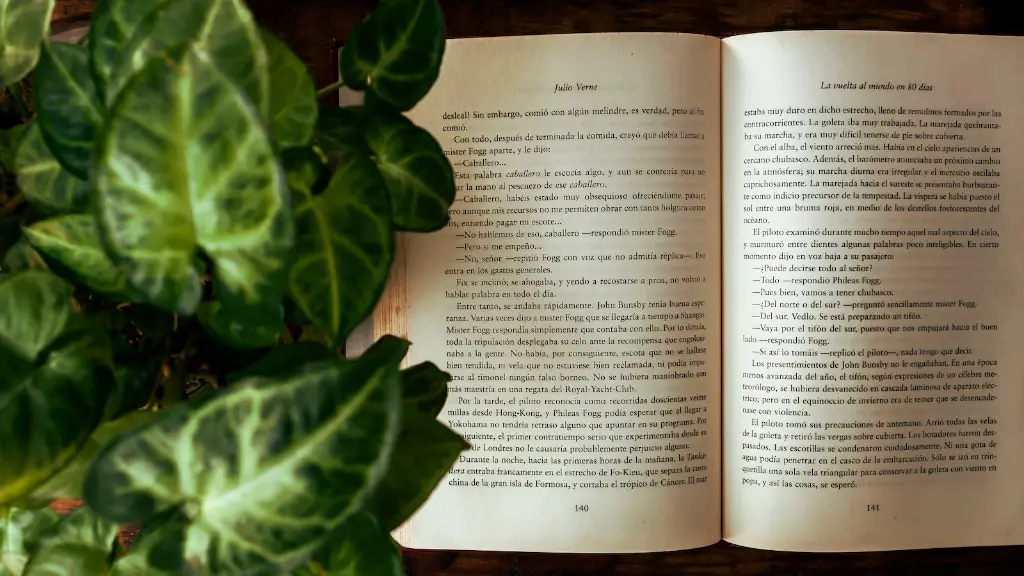Mysticism in poetry is an ancient concept and mode of expression that has recently been embraced by modern poets. Mysticism in poetry is often seen as a blending of the poet’s personal experience with the divine or the spiritual realm. It seeks to evoke a sense of awe and reverence, or as Robert Frost put it, to “fill this valley with a dream of Soul.” Mysticism in poetry is a way for poets to explore and interpret the spiritual world in a poetic language. It is a spiritual form of expression that seeks to transcend language and to uncover the nature of reality. It is not limited to a particular style of writing, but rather is found in different forms such as the sonnet, the epic and the lyric.
Mystic poetry often combines imagery and symbolism to create a spiritual landscape that speaks to the reader. It has been used as a way for poets to express spiritual truths and thereby explore the mysteries of life. Some of the most famous examples of mystic poetry come from John Keats and William Wordsworth. Keats’ poem “Ode on a Grecian Urn” is considered a classic example of mystic poetry. In the poem, Keats writes of an immortal world that is intense and mysterious. Likewise, Wordsworth’s “Lines Written a Few Miles Above Tintern Abbey” expresses a deep sense of connection between himself and Nature, and how both are unified in a mystical way.
Modern poets are also exploring mysticism in their work. While poets such as William Blake explored the idea of mysticism as a spiritual journey, contemporary poets such as W.S. Merwin, Adrienne Rich and Rainer Maria Rilke are exploring the idea of mysticism in their poetry as a way to explore personal identity and self-awareness. For example, Merwin’s “A New World” speaks of an inner journey of discovery as he attempts to uncover the nature of his inner self. Rich’s “Diving into the Wreck” speaks of the metaphysical voyage one takes when diving into the depths of the self. Finally, Rilke’s “The Archaic Torso of Apollo” is a poem in which the speaker is searching for a deeper understanding of the universe, and of life itself.
Mysticism in poetry is difficult to define, but that is part of its power. It is not bound by any particular form or definition, and it speaks to writers in different ways. Mysticism in poetry seeks to take the reader on an exploration of the spiritual, to search for meaning and to evoke an individual response. The power of mysticism in poetry is that it allows poets to tap into a source of beauty and of mystery that can be strangely calming, inspiring and liberating.
Mysticism in Poetry and Nature.
Mysticism in poetry has a long history, stretching back to the earliest written texts. Ancient writers such as Homer and Virgil often used mysticism in their poetry as a way to explore the mystery of Nature, the relationship between Man and Nature, and the spiritual realm. Homer’s Iliad speaks of war and the beauty of Nature, while Virgil’s Aeneid speaks of the courage and strength of a soldier and his epic journey through the spiritual realm. In both cases, mysticism serves to provide a sense of awe and a greater understanding of the spiritual realm as it intertwines with Nature.
Mysticism in poetry can also be used to explore the theme of mortality. Poets such as John Donne and George Herbert often used mysticism in their poetry to explore the mystery of life and death. Donne wrote extensively about the relationship between life and death, and often used literature to explore this theme. Herbert’s “The Pulley” is a poem about the relationship between God and Man, and his desire to be reunited with the divine. Both poets explore life and death in a powerful way, using mysticism as a tool to do this.
Mysticism in poetry can also be used to explore the idea of oneness. Many poets, including Walt Whitman, Rabindranath Tagore and Mary Oliver, often use mysticism in their poetry to explore the idea of the unity of all things. Whitman’s poem “Song of Myself” speaks of a world in which all life forms are united in an eternal and divine embrace. Tagore’s “Gitanjali” speaks of a world in which humans are united in a cosmic dance of creation and destruction, and Oliver’s poems often explore the beauty of Nature and the unity of all creatures. Mysticism in poetry can be used to explore the idea of oneness and to suggest a greater understanding of the spiritual aspect of life.
Mysticism in Poetry and Love.
Mysticism has also been used in poetry to explore the theme of love. Poets such as Emily Dickinson, Rainer Maria Rilke, and Pablo Neruda have often used mysticism in their poems to explore the spiritual nature of love. Dickinson’s poem “I tasted a Liquor Never Brewed” speaks of a mysterious love that has the power to alter reality and transcend physical boundaries. Rilke’s “Letters to A Young Poet” explores the concept of love as a mysterious force that can open minds and hearts. Neruda’s “Sonnet XIX” speaks of love as a spiritual force that can erase past pain and inspire a new hope. All of these poems use mysticism in poetry to explore the spiritual nature of love and the transformative power of this emotion.
Mysticism has also been used in poetry to explore the theme of beauty. Poets such as John Keats, Walt Whitman, and T.S. Eliot often used mysticism to explore the power of beauty and its ability to transcend language and physical boundaries. Keats’ famous poem “Ode on a Grecian Urn” speaks of the beauty of an ancient urn and its ability to speak to us across time. Whitman’s “Song of Myself” speaks of the beauty of Nature and the way in which it can unite us with the divine. Eliot’s “The Love Song of J. Alfred Prufrock” speaks of beauty as something that can provide meaning and purpose in life. Mysticism in poetry can be used to explore the power of beauty and its ability to transform and inspire.
Mysticism in Poetry and Emotion.
Mysticism is often used in poetry to explore the power of emotions and their ability to transform. Poets such as Robert Frost, Wallace Stevens, and Elizabeth Bishop often used mysticism in their poems to explore the power of emotions. Frost’s poem “Stopping by Woods on a Snowy Evening” speaks of the power of emotions to alter reality, as the speaker is transfixed by the beauty of a snow-filled night. Stevens’ poem “Sunday Morning” speaks of the power of emotions to open minds, as the speaker contemplates death and the possibility of renewal and hope. Bishop’s poem “The Fish” speaks of the power of emotions to transform and to bring joy, as the speaker contemplates a majestic fish in the depths of the sea.
Mysticism in poetry can also be used to explore the power of faith. Poets such as Walt Whitman and Emily Dickinson often used mysticism in their poetry to explore the power of faith and the presence of the divine. Whitman’s poem “When Lilacs Last in the Dooryard Bloom’d” speaks of faith as something that can provide hope in times of sorrow and grief. Dickinson’s poem “I felt a Funeral, in my Brain” speaks of faith as a source of strength in times of despair.
Mysticism in Poetry and Knowledge.
Mysticism is often used in poetry to explore the idea of knowledge and the power of knowledge to transform and to open minds. Poets such as John Keats, Ralph Waldo Emerson, and W.B. Yeats often used mysticism in their poetry to explore the power of knowledge. Keats’ poem “Ode on a Grecian Urn” speaks of the power of knowledge to open minds and to reveal reality as it really is. Emerson’s poem “Nature” speaks of the power of knowledge to reveal truth and understanding. Finally, Yeats’ famous poem “The Second Coming” speaks of the power of knowledge to provide hope and lead us into the unknown.
Mysticism in poetry is an ancient concept and mode of expression that has recently been embraced by modern poets. Mysticism in poetry allows poets to explore and interpret the spiritual world in a poetic language, and to explore personal identity, self-awareness, Nature, love, emotion, faith, and knowledge in powerful and meaningful ways. Mysticism in poetry speaks to the writer in different ways, allowing them to tap into a source of beauty and mystery that can be strangely calming, inspiring and liberating.



